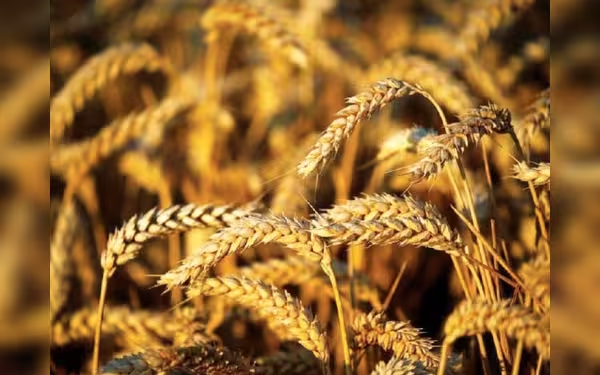Thursday, July 4, 2024 05:39 PM
Department of Plant Protection Ensures Wheat Import Compliance
- SPS measures safeguard human, animal, and plant health during wheat importation.
- DPP enforces Plant Quarantine Act to ensure pest-free agricultural imports.
- Phytosanitary Certificates and Treatments are crucial for wheat import compliance.
 Image Credits: tribune_pk
Image Credits: tribune_pkLearn about the stringent regulations governing wheat importation in Pakistan and the crucial role of the Department of Plant Protection in ensuring compliance with phytosanitary measures to safeguard human, animal, and plant health.
Importing wheat, as well as other agricultural products, is a process governed by strict regulations known as Sanitary and Phyto-Sanitary (SPS) measures. These measures, established under the World Trade Organisation (WTO) SPS Agreement, are designed to safeguard human, animal, and plant health by preventing the spread of pests, diseases, additives, toxins, and contaminants in food and feed.
In Pakistan, the importation of wheat is overseen by the Plant Quarantine Act of 1976 and the Plant Quarantine Rules of 1967. The country, a member of the International Plant Protection Convention (IPPC) since 1954, operates its Department of Plant Protection (DPP) as the National Plant Protection Organisation (NPPO) in accordance with the WTO's SPS Agreement.
The DPP, a part of the Ministry of National Food Security and Research (MNFSR), enforces the Plant Quarantine Act to ensure that imported agricultural goods are free from pests and diseases. Importers must obtain import conditions from the DPP, which conducts Pest Risk Analysis (PRA) to evaluate phytosanitary risks and develop risk mitigation strategies.
Upon approval of import conditions, the DPP issues an 'Import Permit' to the exporting country, which must adhere to Pakistan's phytosanitary requirements. The exporting country then provides a 'Phytosanitary Certificate' confirming the consignment's pest-free status. Upon arrival in Pakistan, the consignment undergoes quarantine inspection by the DPP.
If the consignment meets inspection standards, a Plant Protection Release Order (PPRO) is issued for customs clearance. Import permits are valid for three months, and specific Phytosanitary Treatments may be required for certain commodities like wheat to mitigate pest risks.
Recent incidents of insect pests found in wheat imports underscore the significance of complying with SPS regulations. It is essential to prioritize phytosanitary measures to ensure the safety and quality of agricultural imports.













